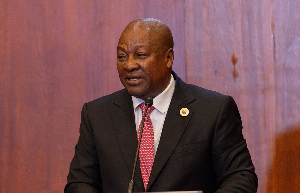Former President, Jerry John Rawlings has described the African capitalism form of governance as an avenue for thieves to amass wealth for themselves at the expense of the general public.
According to him, he will one day take his time to explain the differences between private capital or capitalism and socialism adding that people would realise that from America through to Europe, there is accountability with the practice of capitalism.
“When we say we are practising capitalism in Africa, then we must be careful because the leaders tend to steal from the masses and for entrepreneurs, next time I will explain what we mean by saying private capitalism or socialism for you to know how it is used in Africa. Do you think that we are doing capitalism?” he quizzed.
“From America right across to Europe to the Soviet Union, there is accountability so when Africa says they are practising capitalism, look at it well because thieves are stealing from us in the name of capitalism. Rape, thievery is what they call capitalism,” Mr. Rawlings explained.
The Former President said this while addressing a durbar to climax the 38th anniversary of the December, 31st 1981 coup d’etat on Tuesday, December 31 at the Winneba Lorry Park.
Mr. Rawlings also reiterated that he believes that the system in our part of the world only benefits a handful of people rather than the majority in the continent.
Recounting the circumstances that led to the 1981 coup d’état, Mr. Rawlings stated: “During the Acheampong regime, the banking sector, especially the Ghana Commercial Bank, was plunged into unimaginable corruption”.
Rawlings observed: “The bank served as an avenue for cronies and a particular ethnic group to feed fat on loans without collateral. Sadly, these loans were never paid”.
“A two-man committee established then to look into the fraudulent activities of the bank had their activities come to an abrupt end when one of the members was killed and burnt under mysterious circumstances. How bad could the situation have been to warrant such a heinous and atrocious crime in an attempt to conceal their misconduct? These and many more wicked and morally disgusting actions were common place”, he added.
“It is however unfortunate that some have chosen to siphon the negatives, leaving out the overwhelming gains made by these interventions of the people. The two interventions, 1979 and 1981, were not about Rawlings. They were the effects of the mood of the country and the mood of the people. In telling the story, the context and the circumstances cannot be discounted or overlooked,” Rawlings stressed.`
General News of Wednesday, 1 January 2020
Source: www.ghanaweb.com
Thievery is what we practice in Africa as capitalism - J.J Rawlings
Entertainment












